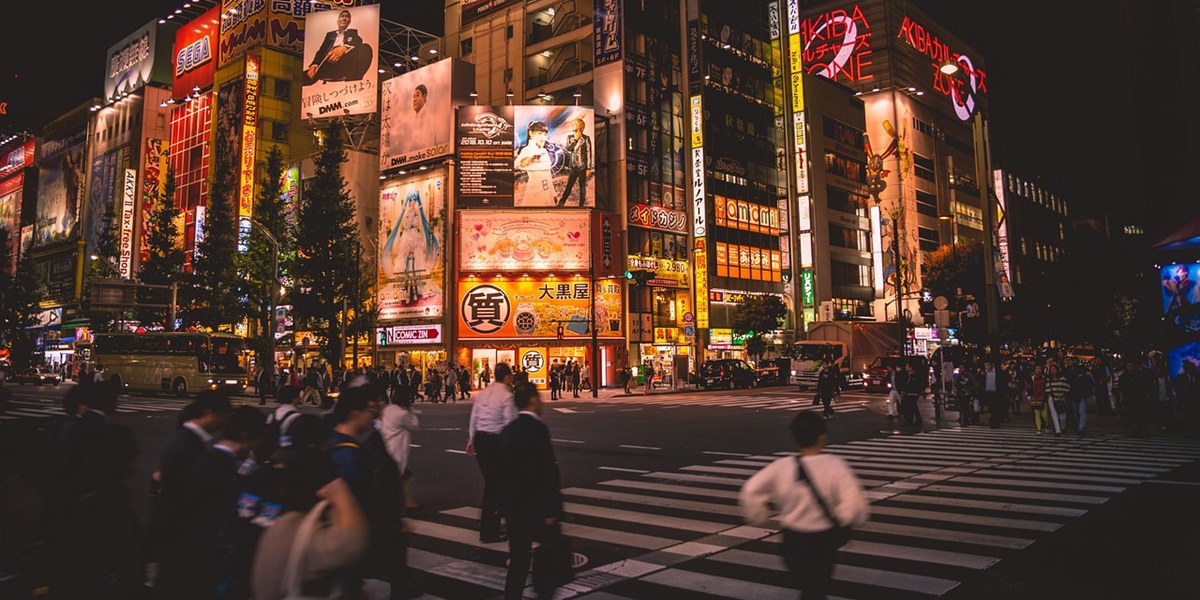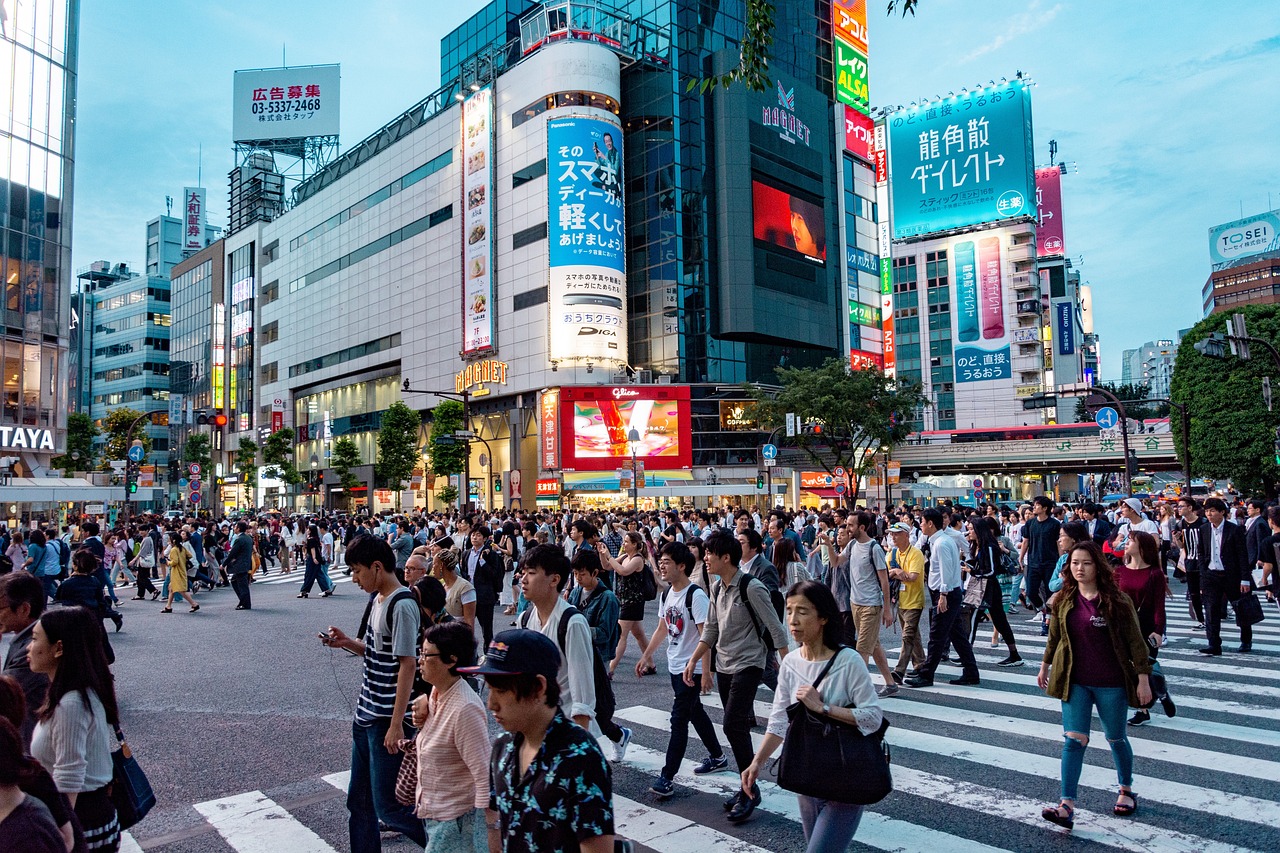List of Kim Tae Ri's Dramas as the Main Cast, All Become Popular Dramas - Have High Ratings
Let's take a look at the list of Kim Tae Ri's dramas that have captivated the hearts of global drama viewers. Check it out, KLovers!

Kapanlagi.com - In the diversity of languages in the world, Japan has a unique way of expressing the concept of noise in Japanese. More than just words, these noisy expressions in Japanese reflect deep cultural values and social ethics in Japanese society.
In this article, Kapanlagi will thoroughly explore various expressions used by the Japanese people to describe noisy, disruptive, or overly crowded situations. We will delve into the nuances of meaning of noisy words in Japanese.
Also included are examples of usage in everyday conversations. Furthermore, we will explore how the concept of noise has shaped and been shaped by Japanese culture, from ancient times to the modern era filled with urban challenges regarding noise.
For KLovers who want to know, here are the noisy expressions in Japanese complete with sentence examples and how noise occurs in Japanese society's culture. Let's check it out, KLovers!

Illustration (credit: pixabay.com)
The common expression for noisy in Japanese is "urusai". This word is often used to describe sounds or situations that are disturbing and too loud for someone.
The word urusai itself can be used as an adjective to describe something noisy, or as an exclamation to ask someone or something to be quiet. Its usage depends on the context and the tone of voice.
In addition to the word urusai, there are also other expressions like "yakamashii" which means noisy or clamorous. These words for noisy in Japanese have slightly different nuances and are used in different situations as well.
Besides knowing the explanation of noisy in Japanese, KLovers can also learn examples of noisy sentences in Japanese. Here are examples of noisy sentences in Japanese along with their meanings:
1. "Kono heya wa urusai desu."
Meaning: This room is noisy.
2. "Urusai! Shizuka ni shite kudasai."
Meaning: Noisy! Please be quiet.
3. "Tonari no hito wa totemo urusai desu."
Meaning: The person next door is very noisy.
4. "Kono machi wa yoru ni naru to yakamashiku narimasu."
Meaning: This town becomes noisy when night falls.
5. "Kodomo-tachi no koe ga urusai desu."
Meaning: The children's voices are noisy.
6. "Urusai koto wa yamete kudasai."
Meaning: Please stop the noisy things.
7. "Kono resutoran wa totemo yakamashii desu."
Meaning: This restaurant is very noisy.
8. "Urusai ongaku o kiki sugite atama ga itai desu."
Meaning: My head hurts from listening to too much noisy music.
9. "Kono kikai wa urusaku te shigotonimo shuuchuu dekinai."
Meaning: This machine is too noisy that I can't concentrate on work.
10. "Urusai to omoeba, mimi o fusaide kudasai."
Meaning: If you feel it's noisy, please cover your ears.

Illustration (credit: pixabay.com)
For those of you who know about Japanese culture, the concept of noise is not something taboo in society. The concept of noise or sound in Japanese culture has a long history closely related to traditional social and aesthetic values. Since ancient times, the Japanese have valued tranquility and harmony with nature.
During the Edo period from 1603-1868, this marked an important era in the perception of noise in society. The growth of major cities like Edo (modern Tokyo) brought new challenges related to urban noise. The shogunate government even issued regulations to control disruptive sounds.
Furthermore, in the modern era, rapid industrialization and urbanization after World War II changed the soundscape in Japan. Cities became noisier, prompting the emergence of anti-noise movements and government regulations to maintain the quality of life for residents. Today, Japan is known for its advanced soundproofing technology.
Thus, there is a strong social ethic regarding public noise. Although Japanese cities are bustling, there is a continuous effort to create serene spaces amidst the urban chaos. The concept "ma" in Japanese aesthetics, which emphasizes the importance of space and silence, continues to influence societal attitudes towards sound and noise.
This reflects a unique balance between modernity and traditional values in contemporary Japanese culture. For those of you studying the Japanese language and wanting to know how to say 'noisy' in Japanese, this article is just right. In addition to learning about 'noisy' in Japanese, there is also history that you can understand and appreciate.
Here are expressions for 'noisy' in Japanese that you can learn. Understanding the expressions for 'noisy' in Japanese opens up insights into the deep values of tranquility and harmony in the culture of the Land of the Rising Sun.
(kpl/dhm)
Cobain For You Page (FYP) Yang kamu suka ada di sini,
lihat isinya
Let's take a look at the list of Kim Tae Ri's dramas that have captivated the hearts of global drama viewers. Check it out, KLovers!
Are you interested in watching the most exciting Thai dramas of 2024? If yes, just check out the list of recommendations and their brief synopses below.
For KLovers who are curious about Yoona's character or have a similar MBTI to hers, here is a brief explanation. Let's check it out, KLovers!
Well, for KLovers who are curious, here is the explanation of Joo Won's character through his MBTI, which is ISFJ. Let's check it out, KLovers!
So, what is the explanation of the meaning of twitching in the right arm according to Javanese primbon? To find out, let's directly look at the following review.
With time running out and dark secrets being revealed. Here is the synopsis of the movie SMOKIN' ACES 2: ASSASSINS' BALL that promises thrilling action and captivating intrigue. Let's check it out, KLovers!
To understand the meaning of dreaming about drawing water from a well, just take a look at the following review.
Curious about what the explanation is for the meaning of twitching in the left arm according to Javanese primbon? To find out, just read the following review.
Curious about the explanation of the meaning of dreaming about finding gold? To find out, just take a look at the explanation below.
On the internet, there is a fan theory that states Ai Haibara in DETECTIVE CONAN has the MBTI type INFP. This assumption is based on the traits or characteristics displayed by Ai Haibara in each series or episode of DETECTIVE CONAN.
Many fan theories suggest that Robert Downey Jr is an MBTI ENTP. Allegedly, there are several traits or characteristics of Robert Downey Jr that reflect ENTP traits. To find out these characteristics, let's take a look at the following review.
So, are you interested in watching the highest-rated Chinese dramas of 2024? If so, let's take a look at the following reviews.